mRNA VACCINE TECHNOLOGY BEYOND COVID-19: FLU, HIV, AND CANCER APPLICATIONS
HOME
BLOG
MRNA VACCINE TECHNOLOGY BEYOND COVID-19: FLU, HIV, AND CANCER APPLICATIONS
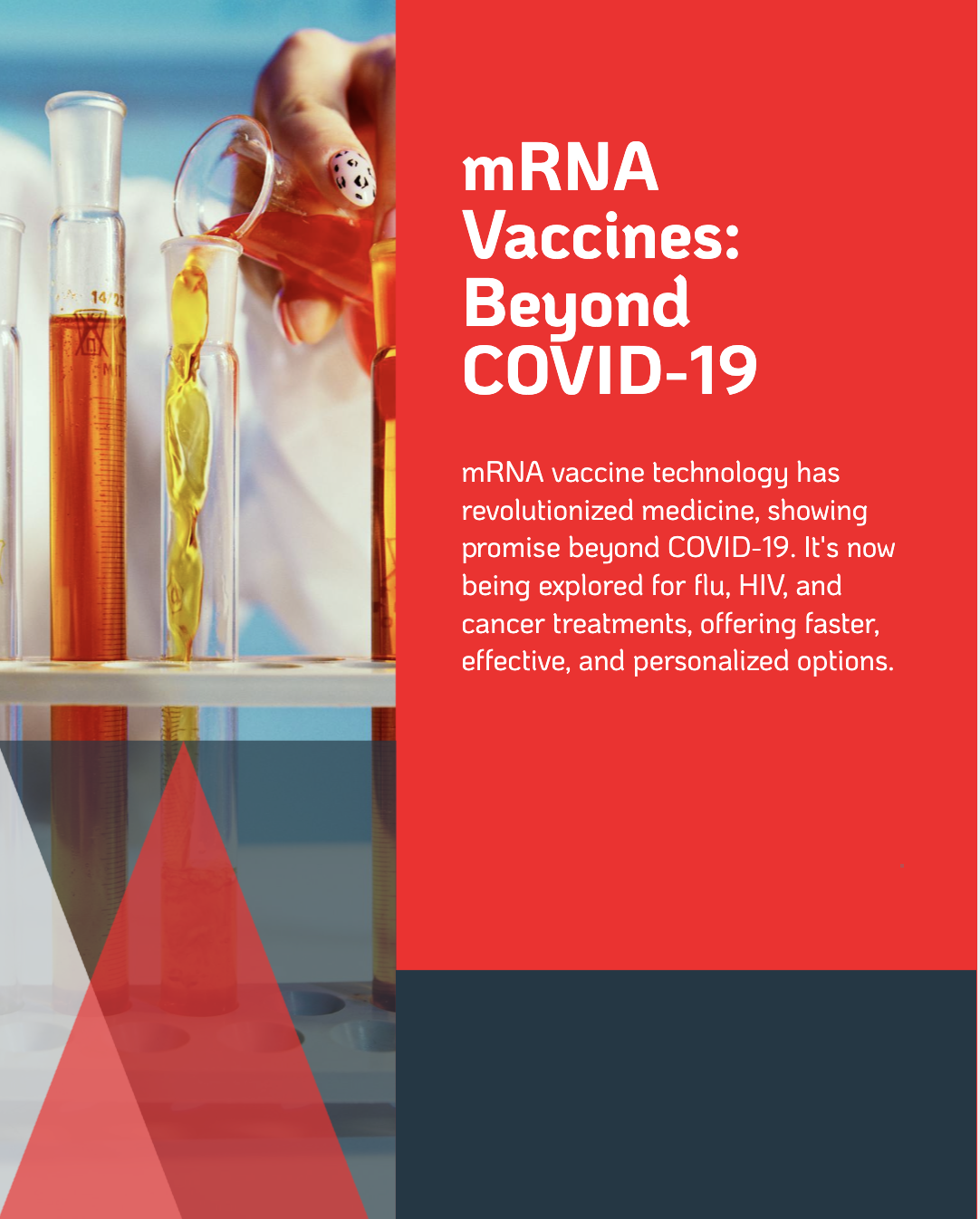
Messenger RNA (mRNA) vaccine technology has revolutionized modern medicine, particularly during the COVID-19 pandemic. However, its potential extends far beyond COVID-19. Scientists and pharmaceutical companies are now leveraging mRNA technology to develop vaccines for other infectious diseases like influenza (flu) and HIV, as well as therapeutic vaccines for cancer. This breakthrough approach could change the future of medicine by offering faster, more effective, and personalized treatments.
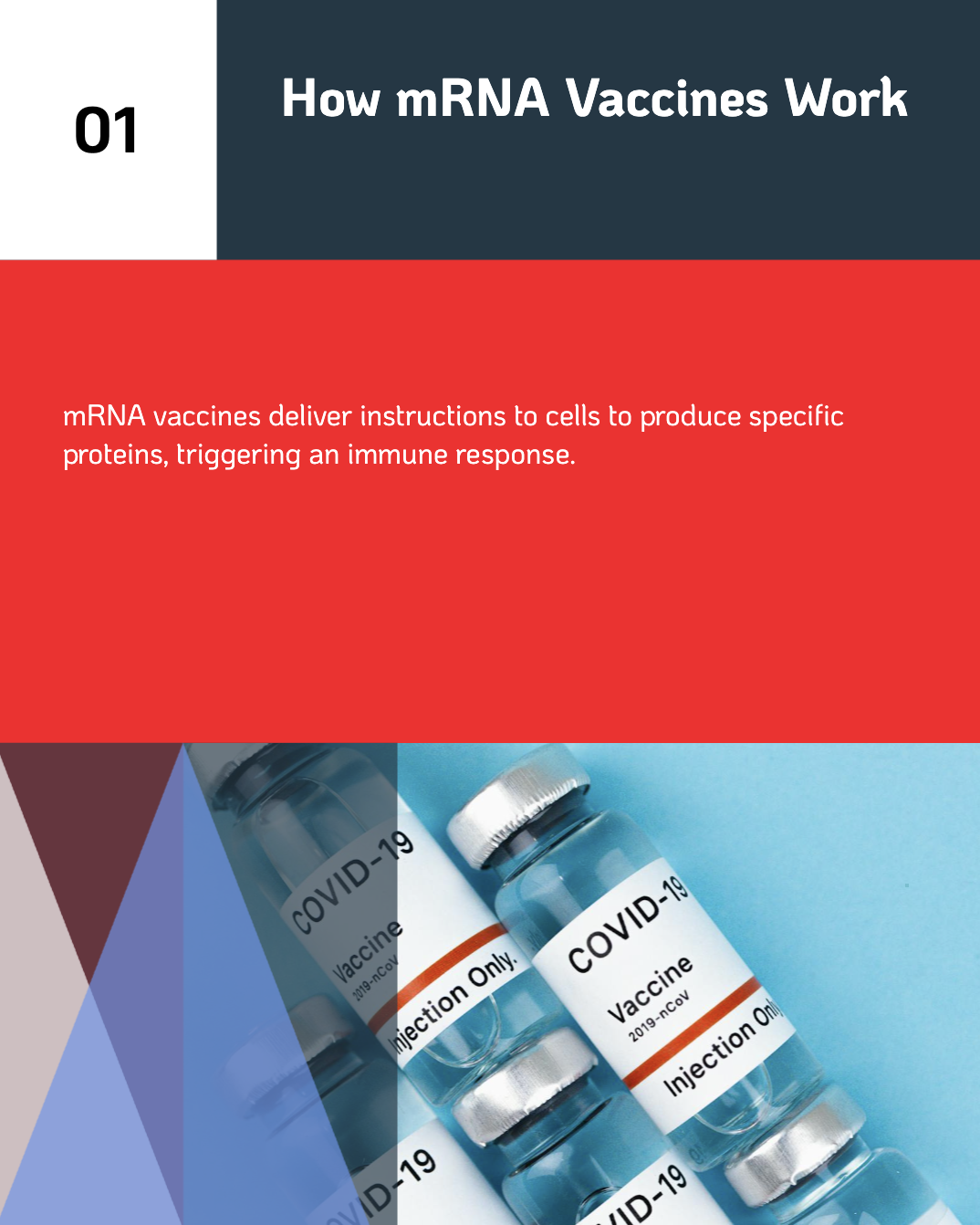
How mRNA Vaccine Technology Works
mRNA vaccines use synthetic messenger RNA to instruct cells to produce a protein that triggers an immune response. Unlike traditional vaccines, which often use weakened or inactivated viruses, mRNA vaccines provide genetic instructions to the body’s cells to build immunity more efficiently.
Key Advantages of mRNA Vaccines
- Rapid Development: mRNA vaccines can be designed and produced much faster than conventional vaccines.
- Customizable: They can be tailored to target specific diseases or even individual patients (especially in cancer treatment).
- Safer Production: Since mRNA vaccines do not use live viruses, they pose a lower risk of contamination.
- Strong Immune Response: They often generate a robust immune response, reducing the need for adjuvants (substances that enhance the body’s immune reaction).
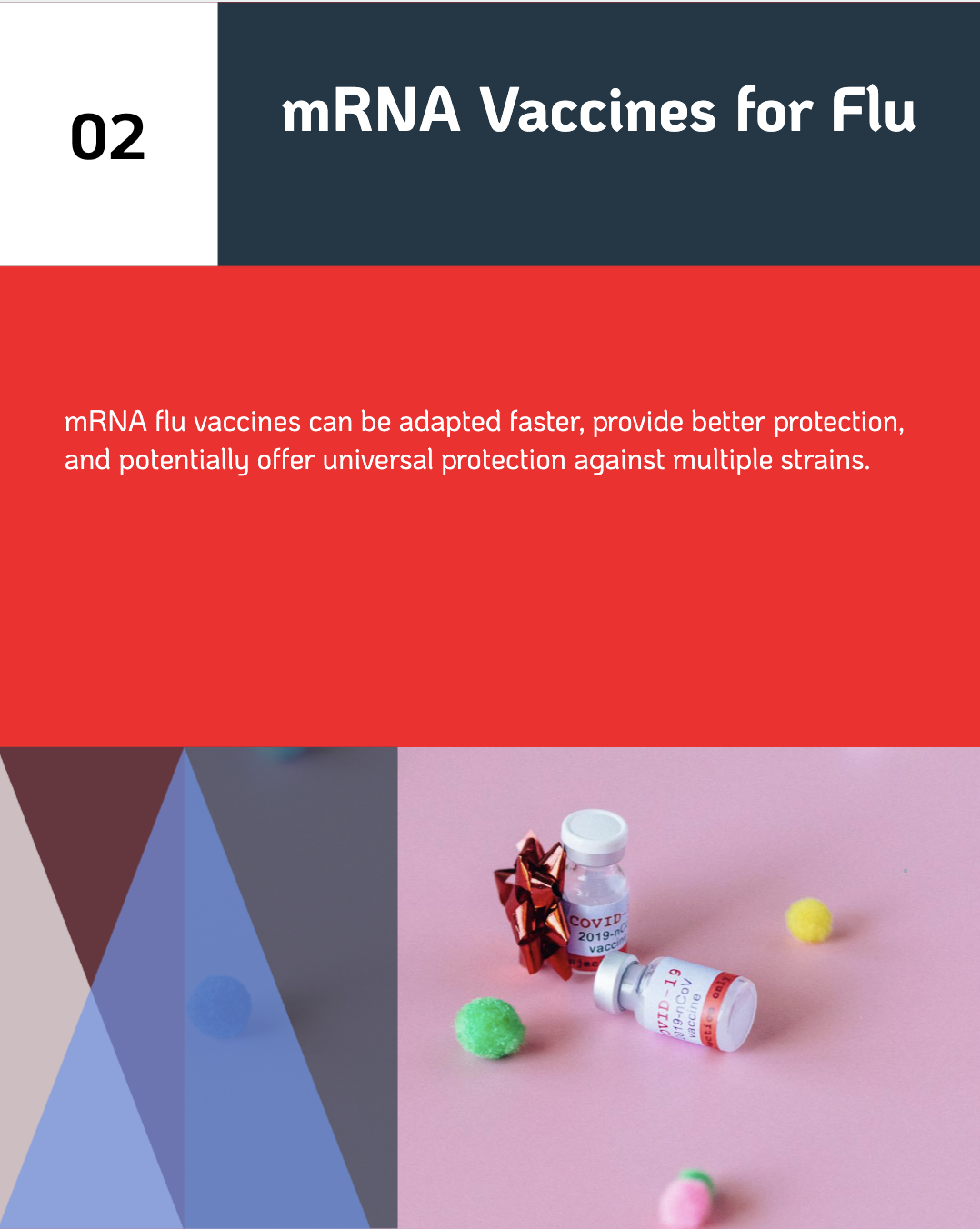
mRNA Vaccines for Influenza (Flu)
Seasonal flu remains a major public health challenge, causing millions of infections and thousands of deaths annually. Current flu vaccines rely on inactivated or weakened virus formulations, which have limited effectiveness due to virus mutations.
Why mRNA Vaccines Are Promising for Flu
- Faster Adaptation: Unlike conventional flu vaccines that take months to develop, mRNA vaccines can be modified quickly in response to emerging flu strains.
- Higher Effectiveness: Traditional flu vaccines often have an effectiveness rate of 40-60%, while early research suggests mRNA flu vaccines could provide better protection.
- Universal Flu Vaccine Potential: Scientists are working on an mRNA-based universal flu vaccine that could protect against multiple flu strains, reducing the need for annual updates.
Current Developments in mRNA Flu Vaccines
Several pharmaceutical companies, including Moderna and Pfizer, are conducting clinical trials for mRNA flu vaccines. Moderna’s mRNA-1010 is in late-stage trials, with promising results showing enhanced immune responses compared to standard flu vaccines.
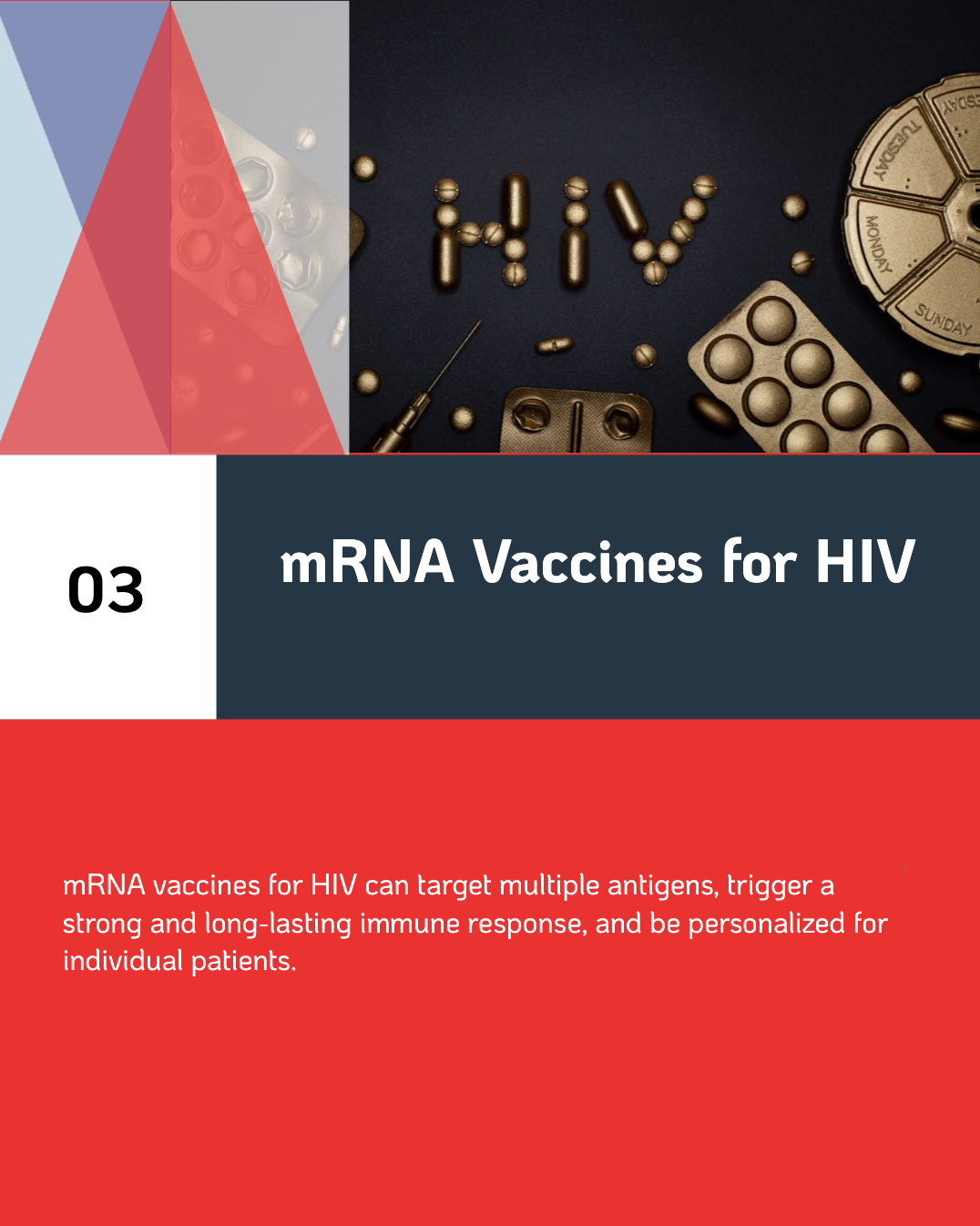
mRNA Vaccines for HIV
HIV has remained one of the most challenging viruses to target with traditional vaccines. The virus rapidly mutates and evades immune detection, making vaccine development extremely difficult. However, mRNA technology offers a new way to approach HIV immunization.
How mRNA Technology Helps in HIV Vaccine Development
- Multi-Target Approach: mRNA vaccines can deliver instructions for multiple antigens, making them more effective against rapidly mutating viruses like HIV.
- Stronger Immune Activation: Early trials show that mRNA vaccines can generate broad and durable immune responses against HIV.
- Personalized Therapy Possibilities: mRNA-based approaches can potentially be tailored to an individual’s immune system to enhance effectiveness.
Current Progress in HIV mRNA Vaccines
- Moderna & IAVI’s HIV Vaccine: The first human trials of an mRNA HIV vaccine began in 2022. Preliminary results indicate that it successfully stimulates the production of rare immune cells needed to fight HIV.
- NIH & Pfizer’s Research: Other mRNA-based HIV vaccine candidates are under development, with preclinical studies showing encouraging results.
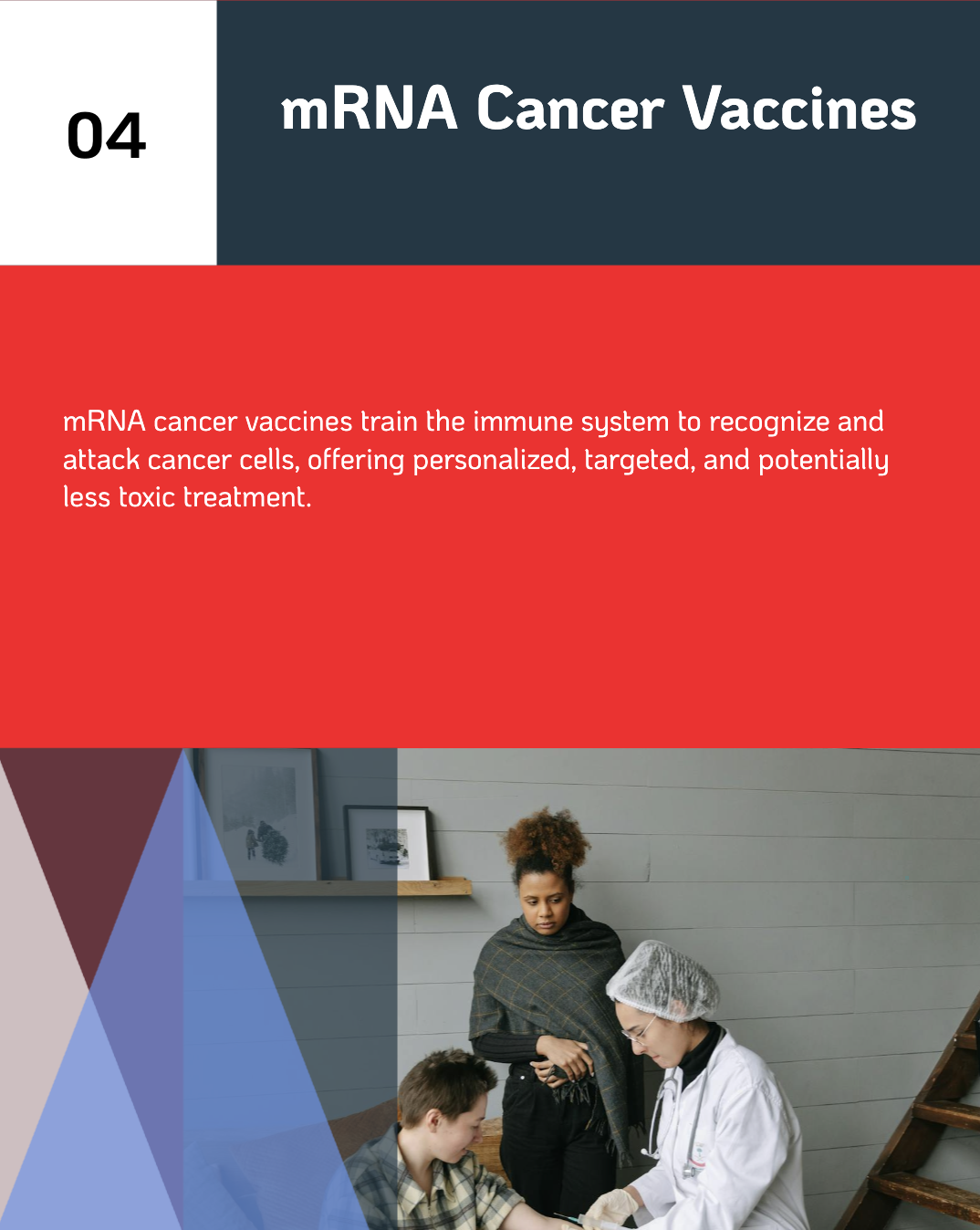
mRNA Therapeutic Vaccines for Cancer
Beyond infectious diseases, mRNA technology is being explored for cancer treatment. Unlike preventive vaccines, cancer vaccines aim to train the immune system to recognize and attack cancer cells.
How mRNA Cancer Vaccines Work
- The vaccine contains mRNA encoding tumor-specific antigens.
- Once injected, the body produces these antigens, triggering an immune response against cancer cells.
- This process helps the immune system recognize and destroy cancer cells while sparing healthy tissue.
Advantages of mRNA Cancer Vaccines
- Personalized Treatment: mRNA technology allows for the development of customized cancer vaccines based on an individual’s tumor profile.
- Targeted Therapy: Unlike chemotherapy, which affects both healthy and cancerous cells, mRNA vaccines enhance the immune system’s ability to selectively attack tumors.
- Lower Side Effects: Since mRNA-based vaccines work by boosting the body's natural immune response, they may have fewer side effects compared to traditional cancer treatments.
Current mRNA Cancer Vaccine Trials
- BioNTech & Moderna’s Cancer Vaccines: Both companies are testing personalized mRNA cancer vaccines for melanoma, lung cancer, and pancreatic cancer.
- Merck & Moderna’s mRNA-4157: A personalized vaccine for melanoma is currently in phase 2 trials and has shown promising results in reducing tumor recurrence.
- Breast & Prostate Cancer Research: Researchers are exploring mRNA vaccines targeting common cancer mutations in breast and prostate cancer.
Future Applications and Challenges
While mRNA vaccine technology shows great promise, there are challenges to overcome before widespread adoption.
Potential Future Applications
- Tuberculosis and Malaria: Scientists are researching mRNA-based vaccines for infectious diseases like TB and malaria.
- Autoimmune Diseases: Some researchers believe mRNA could help regulate immune responses in conditions like multiple sclerosis and rheumatoid arthritis.
- Neurological Disorders: Early-stage studies suggest mRNA therapy could be useful for treating neurodegenerative diseases like Alzheimer’s and Parkinson’s.
Challenges Facing mRNA Vaccine Development
- Storage & Distribution: mRNA vaccines require ultra-cold storage, making distribution difficult in low-income regions.
- High Costs: Development and manufacturing remain expensive compared to traditional vaccines.
- Long-Term Effects: While mRNA vaccines have shown strong safety profiles, their long-term effects need further study.
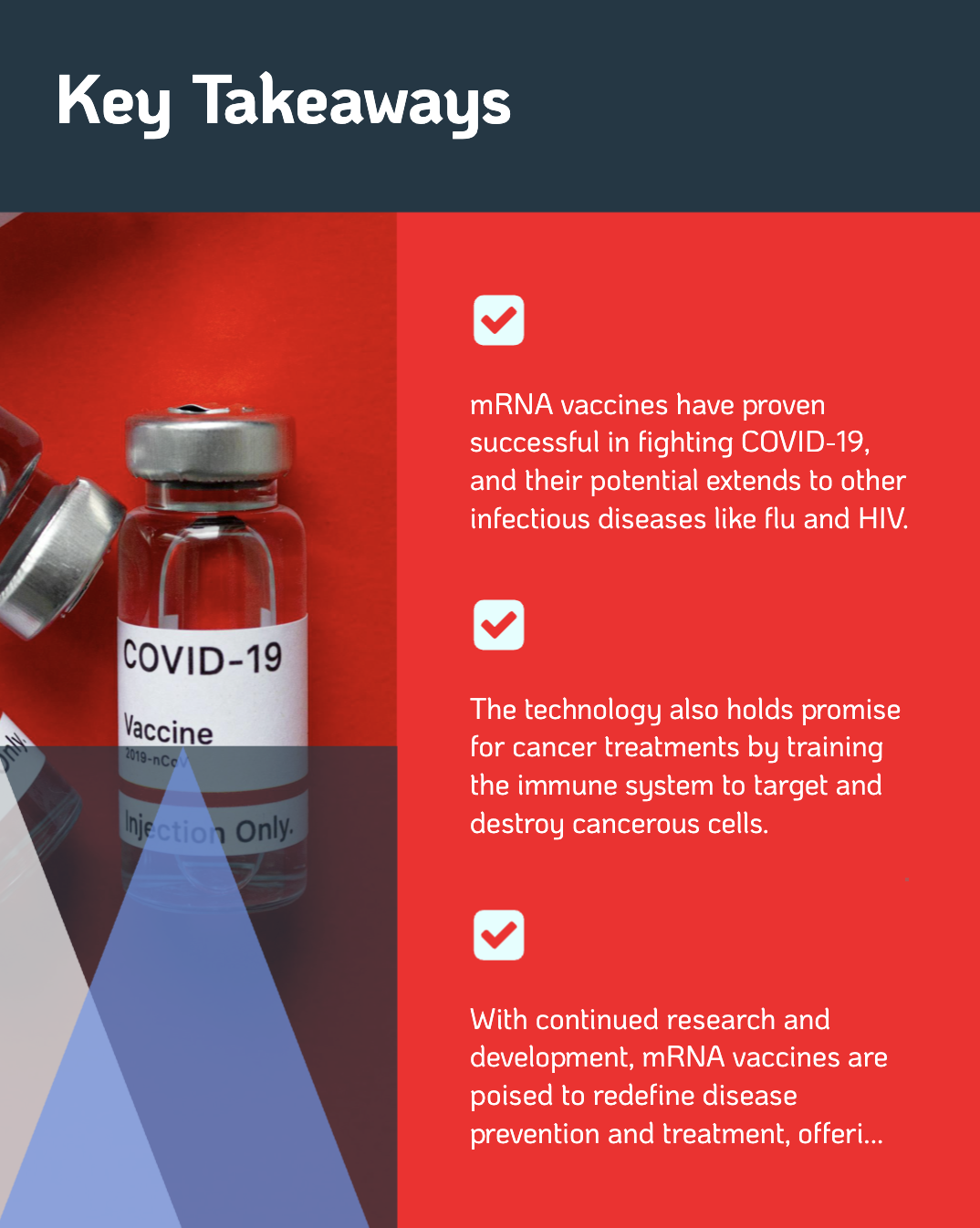
Key Takeaways
The success of mRNA vaccine technology during the COVID-19 pandemic has paved the way for groundbreaking medical advancements. From tackling seasonal flu and HIV to pioneering cancer treatment, mRNA vaccines offer a versatile and powerful tool in modern medicine. With continued research and development, mRNA vaccines could redefine the future of disease prevention and treatment, offering hope for millions worldwide.
FAQs
- How do mRNA vaccines differ from traditional vaccines?
mRNA vaccines use genetic instructions to teach the body’s cells to produce a protein that triggers an immune response, while traditional vaccines typically use weakened or inactivated viruses.
- Are mRNA flu vaccines available yet?
Currently, mRNA flu vaccines are still in clinical trials, but companies like Moderna and Pfizer are making significant progress in their development.
- Can mRNA vaccines cure cancer?
mRNA vaccines for cancer are still in experimental stages, but early results suggest they can help train the immune system to target and destroy cancer cells.
- What are the risks of mRNA vaccines?
mRNA vaccines have been shown to be generally safe, but like any medical treatment, they can have side effects such as mild fever, fatigue, or soreness at the injection site.
- Will mRNA technology replace all vaccines in the future?
While mRNA vaccines offer many advantages, traditional vaccines will likely continue to play a role in immunization, especially for diseases where they are already highly effective.
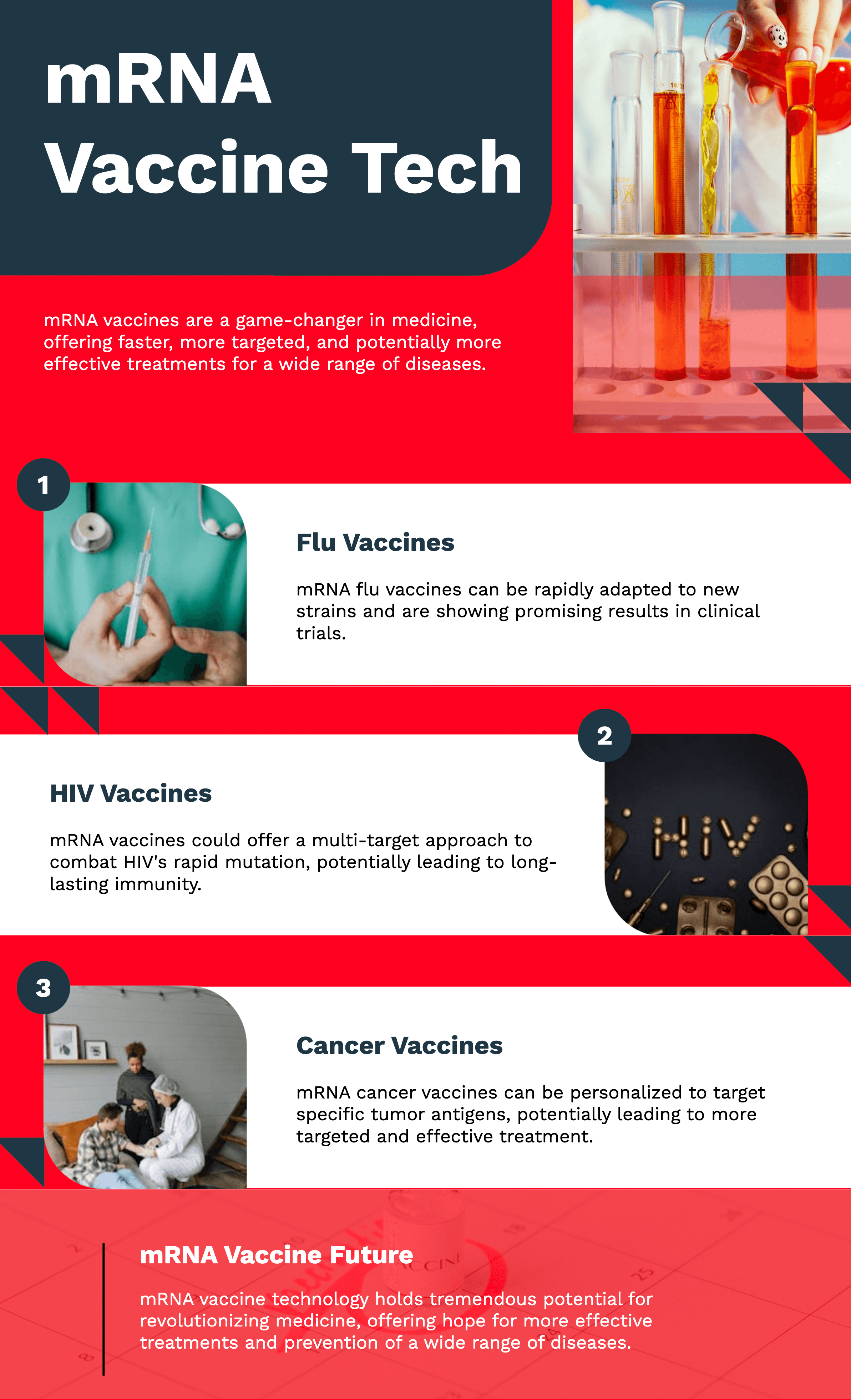 19.02.2025
19.02.2025






 19.02.2025
19.02.2025